Ghost of Tsushima: Iki Island just solidified Jin as one of PlayStation's greatest heroes
Iki Island is worth the admission price of the Ghost of Tsushima: Director's Cut alone
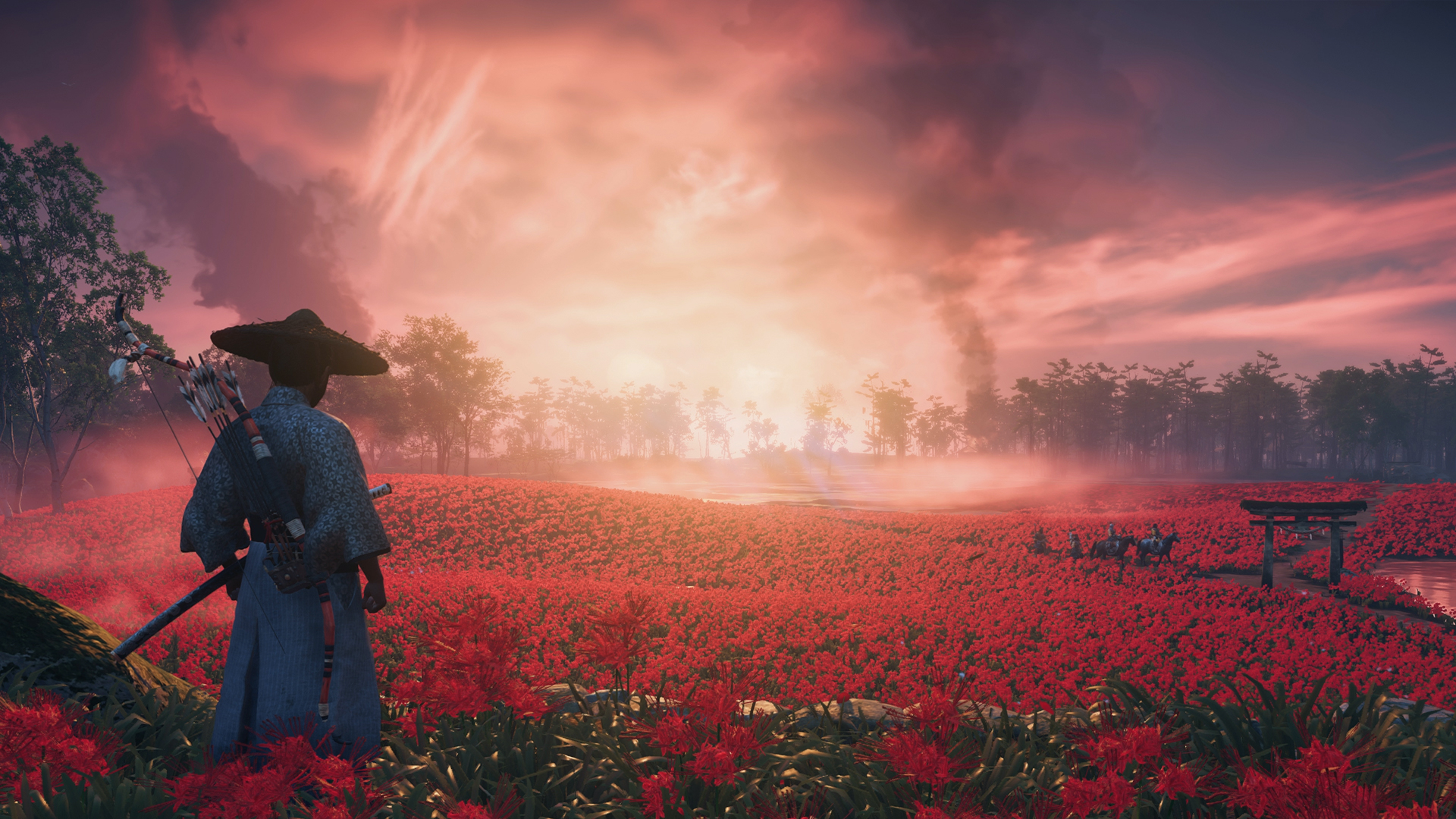
There's one single NPC that sums up everything I love about Ghost of Tsushima: Director's Cut and its brand new DLC, Iki Island. There's a small side story quest called A Helping Hand that's initially little more than a random encounter; a man stooped over a pile of logs that you can choose to speak to as you ride past on your horse. His house and everything he owns has been destroyed by the Mongols that have invaded Iki Island, but he has his life and is trying to start again. One log at a time.
If you're the kind of Jin Sakai that wants to help people, you can choose to donate a log or two to this chap's new home. He thanks you, tells you where he aims to build his new home, and suddenly a new fast travel point pops up on the map. Nip back here straight away and you'll see his crude tools and a small stack of materials, and yet if you come back after another mission or two there is the semblance of a structure starting to take shape. Keep a lookout on your travels and you might even see the man again, standing over the body of a deer, learning how to skin the animal for its hides, or digging through shipwrecks for metals.
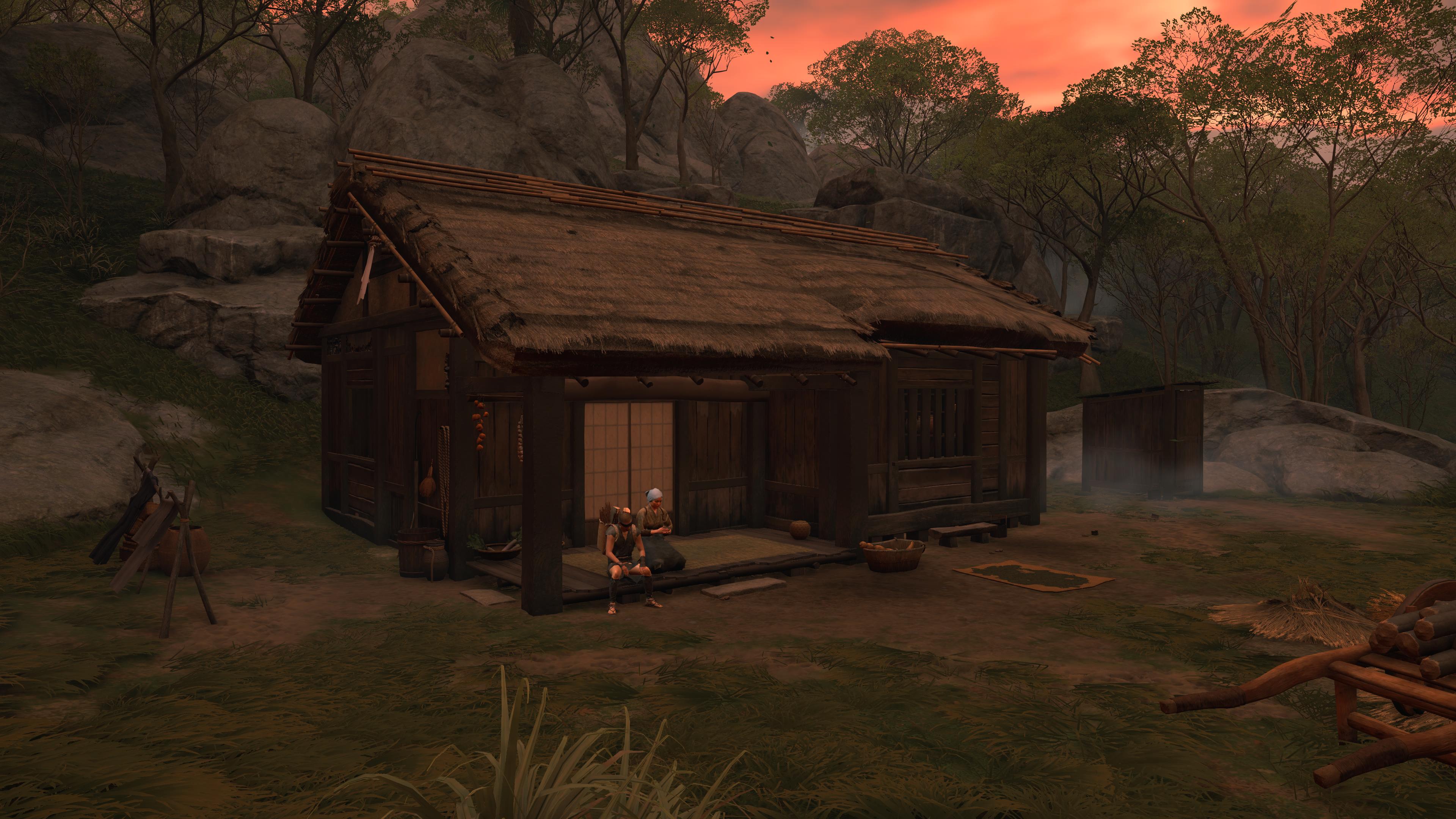
He'll tell you about the loss of his parents, the longing for a family he never had, and his grief at his current situation. An outpouring of emotion that really sums up the impact of the new Iki Island expansion – a small tale that's part of a bigger narrative, but it's these stories that have the most resonance, just as they did in the original game. And it feels like it's possible that I could have missed this mission entirely. I might not have bothered to leap from my horse when first spotting the man in the woods, cantered on past his hunting expedition, or just been too caught up in the main narrative to take a pause.
But missing out on the smaller moments like these – whether you're playing through this Ghost of Tsushima PS5 upgrade for the first time with the Director's Cut, or diving back in for the Iki Island DLC – would be to deprive yourself of the true experience of Sucker Punch's creation.
The man behind the blade
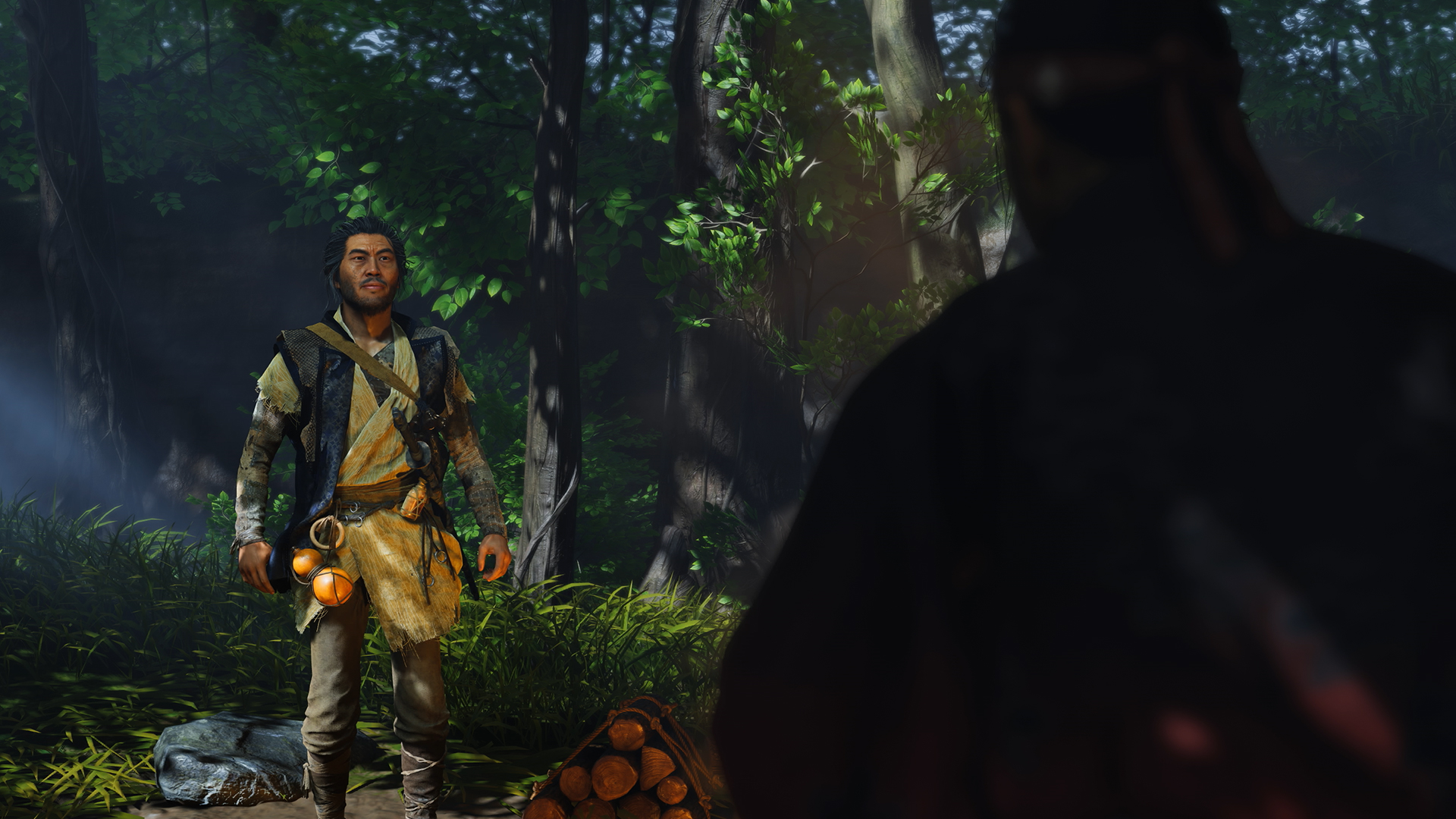
I've always loved Ghost of Tsushima for its side quests, for the smaller, more human-led stories told in the shadows of Khotan Khan's invasion, and Iki Island really dials into this for its main narrative threads. Set on a separate island to Tsushima – as the title suggests – you're able to jump into the DLC from the moment you complete the game's second act, at which point you're informed that some villagers are behaving rather strangely indeed. Acting under what Jin believes to be some kind of poison, it quickly becomes clear that there's an entirely separate Mongol threat to thwart, aside from Khotan Khan's crew, with this one led by a woman known as The Eagle.
She has created a kind of poison, which also happens to be a powerful hallucinogenic. In Jin's attempt to stop the Mongols, he gets captured and fed some, with the intention of making him face his own guilt. Now that's intensely problematic for the Samurai, because Iki Island isn't a new adventure for Jin Sakai – he's been here before. As you'll know if you've played the base game, Jin's father was murdered before him when he was a young boy, and it's something that he's had to wrestle with for many years. That particular life-shattering event just so happened to occur on Iki Island, meaning Jin's about to relive it all over again.

So, while the core goal for Jin is to stop the Eagle's Mongols from reaching Tsushima's shores, the narrative explores more of Jin's backstory, particularly his relationship with both his deceased parents. For someone who loved the dichotomy of Jin's position as Lord Sakai the Samurai and the kind-hearted man who just wants to help his people, this was a real treat. After the Samurai Invasion of Iki Island, Jin's existence as a Samurai isn't the reassuring presence he's used to being on Tsushima, so instead has to persuade Iki's inhabitants that there's more to him than a katana. And the inhabitants just so happen to be the so-called Raiders his own father fought against during the Invasion.
Weekly digests, tales from the communities you love, and more
Daddy issues
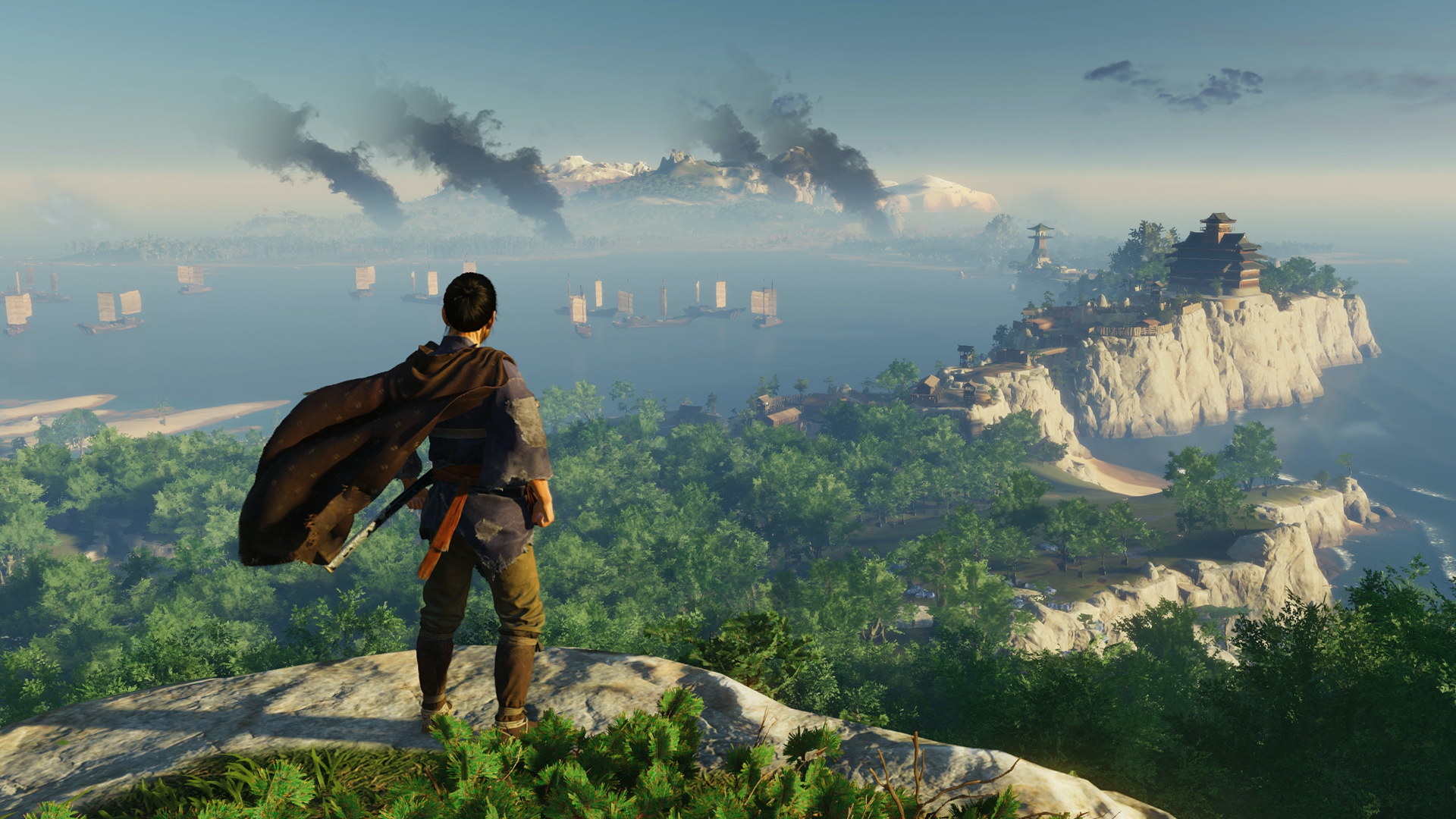
While Jin's father sits always at the center of the story, none of which I want to spoil for those about to make the journey to Iki, there are also some lovely quiet moments where Jin reflects on his mother. Scattered across Iki Island are animal sanctuaries, where monkeys, deer, or tubby, squat wildcats will gather to listen to Jin play the flute. In a slightly gimmicky, but utterly satisfying mini-game, you'll have to tilt your controller to keep a glowing green ball within the lines in order to successfully play the tune, which in turn calms the animals. It's in these moments, kneeling amongst the adorable wildlife, that we learn a little more about Jin – endearing me even more to his character even after all my hours spent with him in the base game.
Because, after all, Ghost of Tsushima isn't always about the combat – although there is plenty of that to be had on Iki. The Eagle's Mongols are some of the toughest targets in the entire game, as they constantly switch up their weaponry, forcing you to quickly change your combat stance mid-katana swipe. After such a break, trying to get back into the flow of Ghost of Tsushima's stunning combat system does take a minute, but it only highlights just how satisfying it is when you remember how it all fits together.
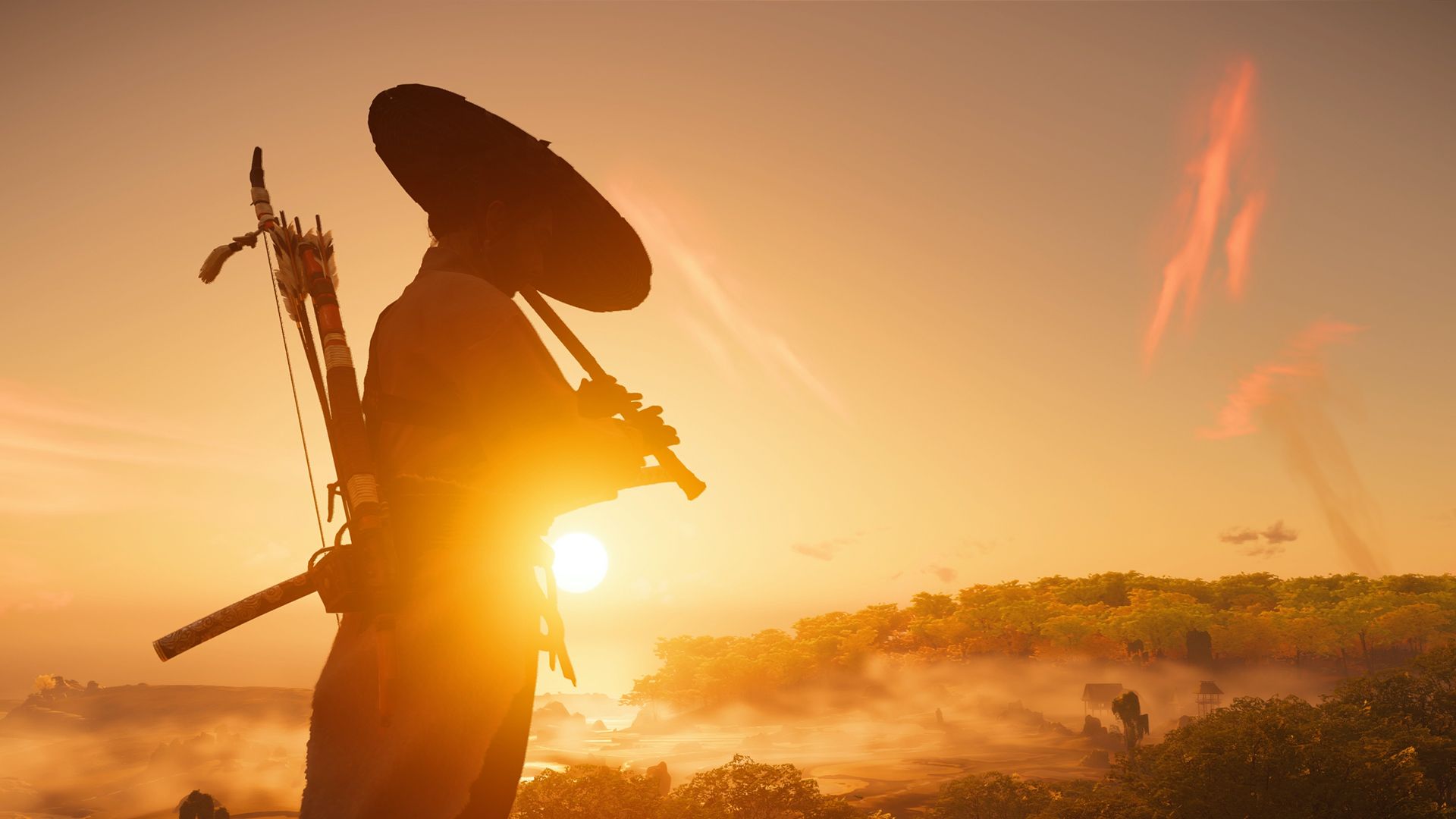
It is more than worthwhile to take a break now and then though, because there's plenty to discover on the island of Iki. From the aforementioned home builder to additional Raider allies, and discovering more about how The Eagle operates, Iki Island has some secrets of its own. Not to mention a few trips down memory lane interspersed with archery challenges and combat arenas that are alive with the clatter of wooden swords.
But, all the while, Jin is battling with his own mind as The Eagle's poison tries to take hold. It grips you just when you're least expecting it – at the moment you run out of stamina on a short run, a missed handhold on a climb, right in the heat of battle – to the point where you feel like The Eagle is ever-present, constantly connecting whatever you happen to be doing to the bigger narrative at hand. And it's that connectivity that really feels at the core of this DLC. Everything you're doing is building your own connection to Jin, helping to flesh out the human side of the inimitable Ghost of Tsushima through his family, his friends, and new-found (if reluctant) allies. Sucker Punch's ability to weave beautiful narratives that will, ahem, sucker punch you right in the feels is more in the spotlight here than ever, and it's an utter success.

Sam Loveridge is the Brand Director and former Global Editor-in-Chief of GamesRadar. She joined the team in August 2017. Sam came to GamesRadar after working at TrustedReviews, Digital Spy, and Fandom, following the completion of an MA in Journalism. In her time, she's also had appearances on The Guardian, BBC, and more. Her experience has seen her cover console and PC games, along with gaming hardware, for a decade, and for GamesRadar, she's in charge of the site's overall direction, managing the team, and making sure it's the best it can be. Her gaming passions lie with weird simulation games, big open-world RPGs, and beautifully crafted indies. She plays across all platforms, and specializes in titles like Pokemon, Assassin's Creed, The Sims, and more. Basically, she loves all games that aren't sports or fighting titles! In her spare time, Sam likes to live like Stardew Valley by cooking and baking, growing vegetables, and enjoying life in the countryside.


